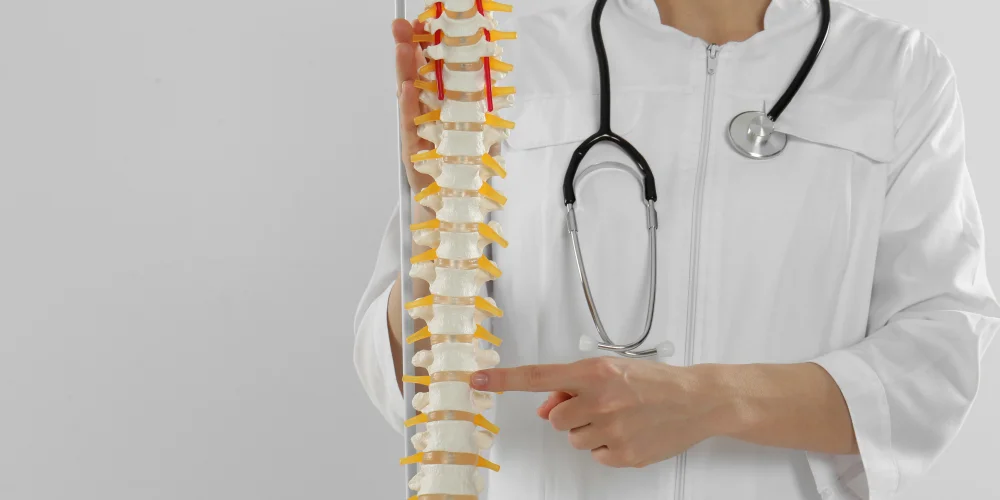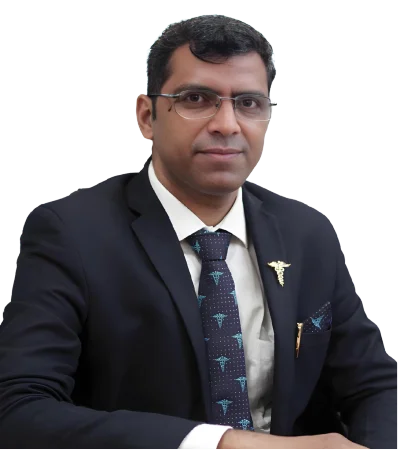Spine Surgery
Precision and Innovation in Spine Care
Spine surgery covers an array of procedures designed to address various forms of spinal conditions, ranging from degenerative disc disease and complex deformities, all the way through degenerative disc disease treatment and complex spinal deformity deformity deformity correction. At Chirayu Super Speciality Hospital, our state-of-the-art spine surgery techniques are performed by experienced neurosurgeons and orthopedic specialists with our goal being providing effective solutions that alleviate pain while also restoring function and improving quality of life for each individual.

What Is Spine Surgery?
Spine surgery refers to surgical interventions intended to address conditions affecting the spine, such as herniated discs, spinal stenosis, scoliosis and spinal tumors. Different kinds of spine surgeries exist based on severity and condition – from minimally invasive techniques such as endoscopic procedures or more extensive operations with multilevel procedures aimed at relieving pressure off nerves in order to stabilize structures, correct deformities and restore normal functionality while relieving any pain associated with deformities or correct deformities so as to restore normal functionality while alleviating any associated with pain relief.
Who Will Perform Your Surgery?
Our spine surgeries are conducted by a team of highly experienced neurosurgeons and orthopedic spine specialists with extensive knowledge in advanced spinal techniques. Utilizing cutting-edge technologies and methodologies, they specialize in tailoring precise treatments specifically to each patient’s unique needs, while their dedication ensures you receive only the highest standard of surgical intervention and support services.
Different Types of Spine Surgery
- Discectomy : For relief of nerve compression and alleviation of pain.
- Laminectomy : Extraction of one or more vertebrae to relieve pressure on the spinal cord or nerves.
- Spinal Fusion : Connecting two or more vertebrae together to strengthen and stabilize the spine and relieve any associated discomfort from spinal instability.
- Scoliosis Surgery : Correcting abnormal spinal curvatures with rods, screws or other instruments to straighten out the spine and restore proper alignment.
Symptoms Signaling the Need for Spine Surgery
Common indications that may warrant spine surgery include severe back or neck pain, radiating into arms or legs, numbness or weakness in limbs and difficulty with mobility or daily activities. When conservative treatments such as medication and physical therapy fail to effectively address such concerns, surgical options may be recommended as an effective solution to address them effectively.
Diagnose Spine Surgery
Determining whether or not spine surgery is needed requires a comprehensive assessment, which includes reviewing medical history and performing physical and imaging tests like X-rays, MRI or CT scans. These diagnostic tools help assess specific spinal conditions as well as their severity as well as determine an ideal surgical strategy.
Treatment Process for Spine Surgery
Our pre-surgical evaluation will assess your overall health and suitability for spine surgery. During surgery, our team utilizes advanced technologies and techniques to address spinal conditions. Following surgery, post-surgery comprehensive care services such as pain management, rehabilitation services and follow-up appointments will be provided postoperatively to ensure a positive recovery process and optimal outcome.
Care and Recovery after Surgery
Post-surgery care centers around managing pain, avoiding complications, and encouraging healing. Most patients spend several days recovering in a hospital setting before commencing rehabilitation to restore strength and mobility. Our team offers tailored plans combining physical therapy and lifestyle changes in order to facilitate successful healing processes and boost long-term spine health.
Advantages of Choosing Our Surgery Services
Spine Care
Offering a full range of spinal surgeries, from decompression to spinal fusion, with a focus on patient-specific solutions.
Invasive Techniques
Advanced minimally invasive options to reduce pain, scarring, and recovery time.
Integrated Rehabilitation Programs
Comprehensive post-surgical rehabilitation to enhance recovery and return to normal activities.
What Our Patients Say
Read about our patients positive experiences and how Chirayu Super Speciality Hospital has positively impacted their health and well-being.


The results of my spine surgery were excellent. I’m experiencing much less pain and have regained much of my mobility.


I’m extremely grateful for the expertise of the surgeons and the quality of care provided. My spine surgery was a great success.


Thanks to the skilled team at Chirayu, my spine surgery was a success. My quality of life has significantly improved.


The spine surgery I had at Chirayu Hospital exceeded my expectations. I’m pain-free and moving better than ever!
Meet Our Medical Specialists
Our experienced spine surgeons specialize in advanced spinal procedures, offering expert care and innovative treatments to enhance your recovery and well-being.
Frequently Asked Questions
Here, we provide answers to some of the most commonly asked questions to help you better understand about our surgery services. If you have any additional questions, please do not hesitate to contact us.
Hospital stay typically ranges from a few days to a week, depending on the complexity of the surgery and your recovery progress.
Risks may include infection, bleeding, nerve damage, or complications related to anesthesia. Your surgeon will discuss these risks in detail.
Preparation includes a pre-surgical evaluation, imaging studies, and discussing the procedure and recovery process with your medical team.
Yes, physical therapy is often recommended to help restore strength, mobility, and function, and to support a successful recovery.
Recovery time varies depending on the procedure and individual health but generally involves a hospital stay followed by several weeks of rehabilitation.



